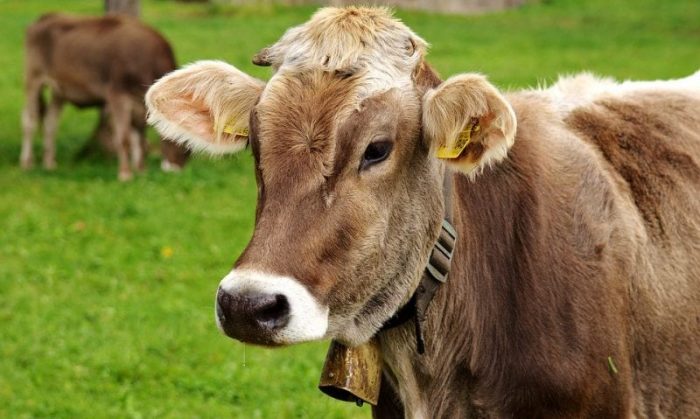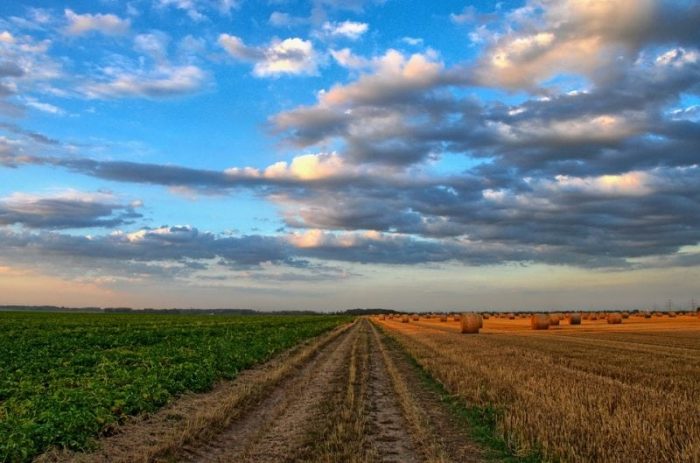
An analysis on the impact of industrial farming suggests that ceasing the consumption of meat and dairy products may be the single best way to for people to reduce the impact they have on the environment.
Three-Quarters Of Farmland Unnecessary?
A comprehensive analysis of the overall damage that farming does to the planet suggests that the production of meat and dairy products uses a massive amount of land, land which could be spared if meat and dairy consumption declined.
The research suggests that approximately 75% of global farmland wouldn’t be required if people stopped eating dairy and meat. In other words, the world could be fed using only a quarter of currently utilized farmland if meat and dairy products ceased production. For reference, this would spare an area the size of Australia, the EU, China and the US combined from being used as farmland, which would, in turn, spare many animals and plants from extinction. It’s believed that one of the leading causes of wildlife extinction is the loss of natural areas to agricultural operations.
The study was published in the journal Science and it analyzed a massive dataset covering around 40,000 farms in almost 120 different countries. The farms analyzed in the study produce around 40 food products that account for almost 90% of all food consumed by humans. The study took into account the impacts of this food production on the environment, covering issues like land use, freshwater use, emissions of greenhouse gases, air pollution, and water pollution.

Photo: Alexas_Fotos via Pixabay, CC0
The researchers found that while dairy and meat food products provide people with 37% of the protein they consume as well as 18% of the calories they consume, they disproportionately use 83% of all farmland. The creation of meat and dairy products is also responsible for the production of around 60% of all greenhouse gas emissions emitted by agricultural operations. This gets more understandable when one takes into account the fact that around 85% of all land mammals on Earth are believed to be either livestock or homo sapiens. Even “low impact” meat and dairy production operations are still responsible for the creation of far more environmental damage than the highest impact cereal and vegetable growing operations.
The “Single Biggest Way” To Reduce Your Impact
Joseph Poore, an environmental scientist from the University of Oxford, UK and lead researcher on the study, said that the “single biggest way” an individual could reduce their impact on the Earth would be to cease consuming meat and dairy products. Poore says that doing this wouldn’t just lower emissions of greenhouse gases, but it would also cut down on water use, land use, acidification of the air and eutrophication of the water.
Says Poore about the impact of agriculture:
Agriculture is a sector that spans all the multitude of environmental problems. Really it is animal products that are responsible for so much of this. Avoiding consumption of animal products delivers far better environmental benefits than trying to purchase sustainable meat and dairy.
The data analysis also implied that there was a substantial amount of variability between the different methods used to produce meat and dairy. As an example, cattle that are raised for beef production on land which has been deforested end up being responsible for almost 12 times more greenhouse gas emissions than beef cattle raised on natural pastures. Beef cattle fed with deforested land also used around 50 times more land overall than those raised on natural grazing pastures.

Photo: wobogre via Pixabay, CC0
Yet while the differences in greenhouse gases emissions between cattle-raising methods is striking, the most striking difference is the difference between beef production and plant production. Even the beef that is produced with the most environmentally responsible methods still produces six times more greenhouse gases and utilizes 35 times more land than the production of peas.
Poore says that although low impact meat production methods still use much more land than the production of plants, the fact that there is such a large amount of variance in the environmental impact of farming methods means that environmental harm could be substantially reduced without the entire population of Earth needing to become vegan. Poore says that even if only the most wasteful and harmful dairy and meat production options were replaced with plant growing operations, it would still result in about 2/3rd of the benefit that ceasing production of dairy and meat would.
Poore says there is a substantial need to reduce levels of meat and dairy consumption, especially as the population will keep growing over the next few decades. Poore says it would be “pretty catastrophic” if the world made it to 2050 without making any substantial changes to the amount of meat and dairy consumed.
Nonetheless, despite the potential benefits that reducing production of dairy and meat would entail, Poore warns that it will be quite difficult to reduce the environmental impact of farming operations. Poore argues that the environmental challenge is a challenge quite unlike any “other sector of the economy. Poore says there are upwards of 570 million farms that would need to alter the way they produce dairy and meat in order to reduce the impact of their operations. Yet considering that there are around $500 billion dollars in agricultural subsidies allocated to the industry every year (if not more), there’s a lot of funds “there to do something really good with.”
Health Benefits And Transition Frameworks
There are other benefits associated with reducing the amount of meat one consumes, not just environmental benefits. Dr. Rosemary Stanton, from the University of New South Wales, wasn’t involved in the study but argues that eating large amounts of red meat increases one’s risk of developing cancer. According to Stanton, the World Health Organization has stated that there is a known increased risk of bowel cancer associated with eating red meat. Australia is one of the largest consumers of red meat in the world, and it likewise has one of the highest rates of bowel cancer in the world. Stanton also says that the problem isn’t only that we eat so much red meat but that we end up eating is as an alternative to vegetables, grains and nuts.
The researchers who worked on the project suggest that an “integrated mitigation framework” should be created. The integrated framework the researchers suggest is the utilization of digital tracking and monitoring technology to help farms reduce their environmental impact. Producers of food could track their impact and use the data gathered from it to optimize farming practices and reduce waste, pollution, and emissions of greenhouse gases.
The researchers also suggested that improved communication between producers is important as there can be substantial differences in the impact of agricultural operations close to one another who produce the same product. Incentives could come in the form of either credit or tax breaks, and the impact of specific producers would be made public so consumers would be able to make informed purchasing decisions.
No matter how we reduce our consumption of meat and dairy, Poore says that it must be done.
“These impacts are not necessary to sustain our current way of life. The question is how much can we reduce them and the answer is a lot,” says Poore.









